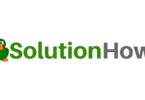Automated systems share some of the credit for providing exactly what you want, whether browsing through Instagram videos or purchasing tickets for a challenging travel itinerary. Speaking of the latter, travel marketing automation systems excel at streamlining complex activities and producing desired outcomes quickly. They are simple to use and intuitive.
So, who gains from this technology the most? Both service providers and end customers are utilizing automation in the travel sector. To what purpose? Here are the top seven ways that travel technology may streamline your operations.
1. Improved Efficiency and Saved Resources

Improved Efficiency and Saved Resources
Employees can handle more leads and bookings due to automated sales operations and communications. This implies that businesses may accomplish more with the same workforce.
Notably, you can get reliable travel technology providers online by reading reviews to understand the quality of services offered by various vendors.
Automated travel systems make handling the ordering procedure, inventories, role assignments, and production of lists for transfers, flights, buses, and hotel accommodations easier. It streamlines operations, boosts effectiveness, and cuts costs by organizing passenger arrivals and departures.
The operations module of travel software replaces numerous Excel files. Management comprehensively overviews all reserved services, goods, and reservations assigned and unassigned.
Unconfirmed reservations can be immediately identified and assigned to individual personnel with immediate notification, and their status can be tracked. Reports on availability help identify overbooking issues and indicate when more inventory is required.
2. Faster Sales and Increased Revenue
There are many steps in the entire sales and booking process, and not all parties are involved.
Customers frequently request revisions after making their initial inquiry. The next step is to alter the itinerary, contact suppliers, compare costs, amend paperwork, exchange emails, etc. You might easily observe a rise in your sales graph if you could automate these processes, gain more time, decrease manual labor, errors, and calls, and take notes.
Automated activities considerably increase the number of reservations that one person can manage.
3. Happy Customers and Productive Employees

Happy Customers and Productive Employees
Numerous, monotonous chores can be completed by cutting out some of your workers’ jobs for them, thanks to innovative technologies.
By automating workflow and communication processes, such as sending documents to clients and requests to suppliers, they may spend more time being creative. Customers, however, have a better experience overall, from the initial inquiry to their stay at the location, when they receive quick and tailored responses.
There is a third perspective; of course, professional, trustworthy procedures and communications will help you build your business relationship with suppliers.
4. Added Safety and Security

Added Safety and Security
Travel companies are no exception to the communal obligation that all modern online businesses have to their customers. A good travel management strategy for their business clients aims to reduce risk.
Automation provides a solid risk management plan. GPS tracking systems and up-to-date reports help firms and customers communicate more effectively. Such data also help to focus on high-risk locations and guarantee the security of their workers while they are out in the field.
5. Reduction Of Errors and Risks
An oversight could lead to issues if you manually create and deliver invoices. If you bill your customer improperly, you may have to give them a new invoice, apologize, deal with any issues that may arise, or you may even lose them forever. Errors are less likely when invoice production and processing are automatic.
Verification is also necessary for service providers’ supplied invoices. After you input, the system will immediately combine the invoiced prices with the negotiated prices. You can also specify due dates and automatic payment policies for supplier invoices. The function will stop past-due payments and strengthen your connections with service providers.
The administration of accounts payable makes it easier to see the entire amount owed to suppliers and verify everyone’s outstanding balances. Reports of confirmed reservations that still need to be invoiced give a clearer picture of potential liabilities.
Using travel software could reduce the risks associated with negative currency changes. The system will automatically calculate the difference and bill the consumer a few days before the trip if such a fluctuation results in higher product purchase prices.
6. Improved Sales

Improved Sales
When it comes to sales in the travel industry, speed is essential. Tour operators can quickly reply to potential consumers’ inquiries and complete bookings by automating the research and booking procedures.
Better reservation administration, quick design of complex itineraries, quick booking with third-party providers, improved communication between all parties, and a global distribution system are further advantages of automation.
7. Boosting Cost-Efficiency
The basis of modern equipment is the money it saves. If a new piece of technology failed to fulfill this fundamental requirement, it would never be praised. Additionally, travel automation systems reduce the same.
Setting up and integrating existing systems with automated technologies is expensive and time-consuming. But in the long run, it pays off. While the business is being transformed, time, money, and resources are saved.
According to statistics, an automated system can reduce operating costs by 40–75%, especially for a travel agency. Additionally, it decreases the possibility of human error and saves time, which brings the discussion back to cost savings.
Bottomline
There are a lot of moving components and stakeholders involved in travel management. Thanks to specialized ERP systems, businesses and employees can observe the entire process holistically and have more control over it.
Businesses can stay competitive in the quick-paced travel sector, satisfy the needs of tech-savvy customers, and provide top-notch experiences by integrating travel technology. Embracing these technological developments will promote growth and success in a tourism industry that is continually changing while also simplifying company procedures.
Travel companies should be proactive and employ cutting-edge solutions to stay ahead of the competition and offer clients unmatched travel experiences as technology develops.






